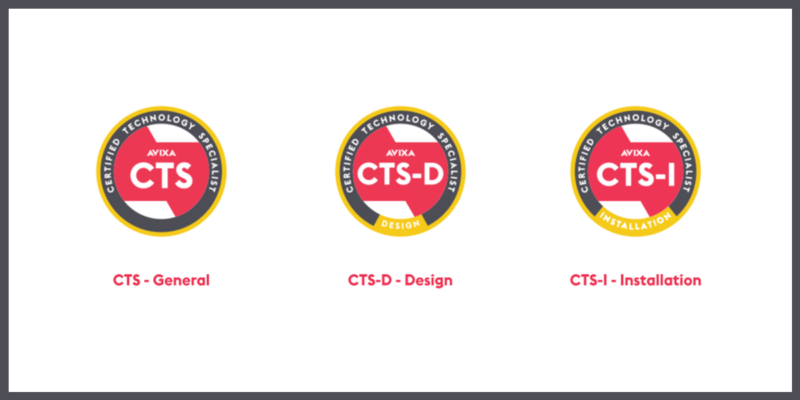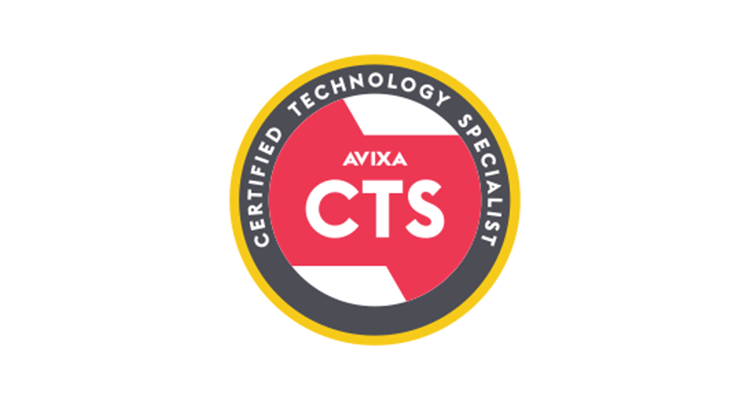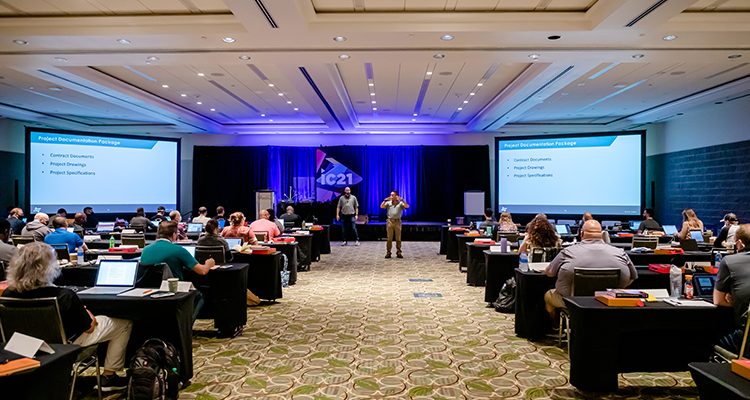AVPhenom’s CTS Exam Tips
If you are an AV industry professional in the commercial AV space, odds are you are familiar with InfoComm’s CTS certifications. There are 3 varieties currently, being the CTS General, the CTS-D for Design, and the CTS-I for installation. Many times a consultant or an end user may require that the integrator working on their project has CTS certification of some sort as a prerequisite for bidding on their work, and given the competitive nature of AV, that means it’s probably a great idea to have a few CTS holders on staff.
I now work for an AV manufacturer, so I no longer need the CTS certification to bid jobs like I may have as an integrator, but there is still value in holding the certifications for me currently as well. I wrote about those reasons here.
As someone who has taken and passed both the CTS and CTS-D exams, (and currently preparing to take the CTS-I exam), I thought that I’d share my CTS exam test taking strategies and tips.

Points don’t equal percentage.
I list this one first because I think it has the most potential to trip people up. I have seen some people say that you only need to get 70 out of 100 questions right to pass the CTS General exam. On the surface, this seems logical, because to pass any of the CTS exams you need 350 points out of a total of 500. However, the percentage of correct answers does not equate to earning that same percentage of the total points.
For example, each CTS-D exam has 125 scored questions, but those questions can vary from exam to exam. The 125 questions are pulled from a “bank” of possible questions, and some of those questions may be more difficult than others. Given that, InfoComm has to have a mechanism for leveling the field. This means that an exam with a herder mix of questions may require getting 74% of the questions right to earn the 350 points, while an exam with easier questions may require getting 78% of the questions right to earn that same 350 points.
If it sounds confusing it was a little to me as well, however this type of “leveling” is required by ANSI and used by all other prominent certification systems in other industries as well. It assures that those exam takers who get harder versions of the test don’t have higher failure rates.
Any strategy that says “I just need a 70% to pass” is inherently flawed.
One other thing to note is that each exam also has 10 questions that are being “evaluated”. These questions are not scored, but may end up being part of the bank of exam questions in the future. As an exam taker, you will not know which 10 questions “don’t count”.
Given all this, how many questions should you feel confident about before you hit submit?
The CTS General has 100 questions and 10 test questions, so to be safe you’d aim for 80% of the scored questions, plus 10 more (in case 10 of those you are confident about “don’t count”). I would recommend that you are fairly certain about 90 of the total 110 before submitting.
The CTS-D and CTS-I have 125 questions plus 10 test questions, so given the same philosophy as above, I’d recommend that you are confident about 110 of your 125 answers before hitting “submit”.
If you’re a vet, go with your gut.
I can’t claim credit for this piece of advice because industry friend, veteran, and former CTS prep instructor Malissa Dillman actually gave this advice to me when taking my CTS-D.
If you’ve been in the industry for some time, there will be questions on the exam that you feel you know the answer to instantly.
If that happens, go with it!
Odds are your gut reaction will serve you well. Stopping and analyzing may cause you to overthink and second guess the right answer.
Circle back.
A great feature of the CTS exams is that the software allows you to flag questions for later review. If you find yourself taking more than 3 or 4 minutes on a question, it’s a good idea to flag it, move on, and come back to it later. Taking too much time on one question can ruin your exam rhythm and affect your mindset for future questions, not to mention potentially costing you time that prevents you from finishing in the allotted time.
If you are stressed out by timed tests, I recommend using this feature even more. Go through the test answering all the questions you know instantly, flagging those that require computation or more thought. This way you can get through the large chunk of the exam that you know well, giving you some peace of mind that a large section is already done. Then tackle the remaining flagged questions in the remaining time, saving the most difficult ones for last.
Brush up on your AV Math and algebra skills.
Another great thing about the InfoComm exams is that most of the AV Math equations you’ll need are actually provided on a reference sheet. So even though you will still need to know which equation to use to solve each math problem, you won’t need to memorize every equation before taking the exam.
My tip here is to brush up on your algebra skills. Many times the equation on the provided list may be in a different form than what you need to solve the problem. In other words, know how to manipulate an equation to isolate the variable you need to solve for.
I.E that if the equation is X = Y^2 that you know how to solve for Y or that Y = sqrt (X).
Know the InfoComm lingo.
Part of every CTS exam has to do with best practices. Now, as an AV professional, you may be intimately familiar with construction drawings, client meetings, and stages of a project, but you may not refer to them in the same way that InfoComm has defined them.
For example, when do you need reflected ceiling plans? Is it the Program Phase, the Design Phase, or the Construction Phase? Well InfoComm has defined these phases and procedures and uses specific language to reference them and if you don’t know the lingo, you won’t get these questions right.
Most refer to this as InfoComm’s “little black book”. You need to read and review it. This is where some memorization will come in handy.
Of course, it goes without saying that InfoComm has some great instructors and both onsite and remote exam prep courses available as well if you want to make sure you’ve covered all your bases. I know industry vets and newcomers alike that swear by the exam prep they invested in and I know some of the instructors personally, their AV skills are not in question. AV Math, Best Practices, and other key areas of the exams are covered in these courses as well.
Hopefully these tips will come in handy in your quest for whatever CTS certification you are currently seeking. I know that I will be employing them as well on my quest to earn the CTS-I and pull off the CTS hat trick.




